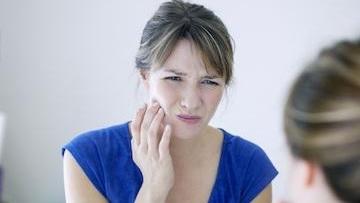
When a tooth is extracted, a blood clot forms over the extraction site to protect and heal the underlying bone and nerve endings. Until your gums have healed, the clot will remain in place.
When the clot becomes dislodged, you may develop a painful consequence called a dry socket or alveolar osteitis. A dry socket is inconvenient and slows healing, so you must avoid it.
What Is a Dry Socket?
When an adult tooth is extracted, the socket’s bone and nerve become exposed, resulting in a dry socket. Clots normally form to protect the region, but if one does not form, anything in your mouth—food, fluids, even air—can leave the area susceptible to infection.
It is normal to suffer discomfort after wisdom tooth removal, but if you experience severe pain, especially if it is rising in severity or radiating towards your ear, or if you have a terrible taste in your mouth, call your dentist immediately.
Thankfully, it can be treated, but it is preferable to avoid dry socket in the first place.
You’re more likely to get a dry socket if you:
- Had a wisdom tooth extracted
- Have a history of dry socket
- Use birth control
- Smoke cigarettes
- Had a traumatic extraction, such as one caused by an accident or an infection
- Have a poor dental hygiene history
- Take anticoagulant medicine to prevent blood clots
How Can You Avoid a Dry Socket?
Use any suggested oral antibiotics or antiseptic solutions after having a tooth pulled, and follow your oral surgeon’s post-op instructions on how to avoid a dry socket. These instructions will most likely include the following:
Don’t Drink from a Straw
When you use a straw, the suction movement of air and cheek muscles may remove your blood clot. After your extraction, you should refrain from using straws for one week.
Don’t Smoke
Smokers and tobacco users have an increased chance of having a dry socket after tooth extraction. Smoking’s rapid intake can dislodge a blood clot. This is true of any type of smoking, not just cigarettes. Other tobacco products may include compounds that inhibit healing and promote infection.
Restrict the Foods You Eat
Eat only soft foods the first day following surgery, such as applesauce, yogurt, and mashed potatoes. You can try slightly heartier foods on the second day, but if you have any pain, you should revert to soft foods.
Soup should be avoided since it may stimulate sucking, which could dislodge the blood clot. Also, stay away from nuts, seeds, hard meals like chips, and sticky items that could become stuck in your socket.
Don’t Drink Alcoholic Beverages
Because alcohol thins the layer of blood that grows within your empty tooth socket, it should be avoided at all costs.
Restrict Physical Activity
For the next five to seven days, take a break from heavy work and activities that put your blood clot in jeopardy.
How to Deal with a Dry Socket
While dry socket is very uncommon, it does affect 2-5 percent of people. If you’re one of them, your dentist is the ideal person to give you treatment advice. Typical examples include:
- Anti-inflammatories (over-the-counter or prescribed)
- Medication applied to the skin
- Rinsing or flushing your mouth
- Take good care of your teeth and gums.





